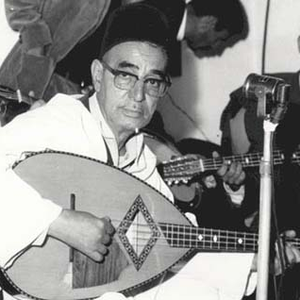
| Trackimage | Playbut | Trackname | Playbut | Trackname |
|---|---|---|---|---|
| 84372895 | Play | rabi alaamlih iydaabar, pt. 2 (arabic; algeria) | 00:00 Tools | |
| 84372896 | Play | Sobhane Allah Ya L'tif | 00:00 Tools | |
| 84372900 | Play | Ya Sahbi | 00:00 Tools | |
| 84372897 | Play | Sbaby Felmout | 00:00 Tools | |
| 84372898 | Play | Ach Nouacy Ya Rabbi | 00:00 Tools | |
| 84372905 | Play | Al Hmame Li Rabitou | 00:00 Tools | |
| 84372899 | Play | El meknassia (1?re partie) | 00:00 Tools | |
| 84372913 | Play | rabi alaamlih iydaabar, pt. 2 | 00:00 Tools | |
| 84372901 | Play | Sobhane Allah ya l'tif (suite) | 00:00 Tools | |
| 84372902 | Play | El meknassia (3?me partie) | 00:00 Tools | |
| 84372903 | Play | El Hemdou Lillah | 00:00 Tools | |
| 84372904 | Play | El meknassia (2?me partie) | 00:00 Tools | |
| 84372908 | Play | Elhmane | 00:00 Tools | |
| 84372909 | Play | L'Hmem | 00:00 Tools | |
| 84372907 | Play | Goulou Laymi | 00:00 Tools | |
| 84372911 | Play | El Meknassia | 00:00 Tools | |
| 84372910 | Play | Lalla Zhor | 00:00 Tools | |
| 84372906 | Play | Sobhae Allah ya L'tif (suite) | 00:00 Tools | |
| 84372912 | Play | Sobhane Allah | 00:00 Tools | |
| 84372914 | Play | Koulou Lilyami | 00:00 Tools | |
| 84372915 | Play | Oulfi Meraim | 00:00 Tools | |
| 84372916 | Play | Rabi alaamlih iydaabar, part 2 | 00:00 Tools | |
| 84372919 | Play | Ya Sidi Ya Rsoul | 00:00 Tools | |
| 84372920 | Play | Hadjou Bel Fikre | 00:00 Tools | |
| 84372917 | Play | Piste audio 01 | 00:00 Tools | |
| 84372921 | Play | Elmeknassiya Ach Men Ar | 00:00 Tools | |
| 84372918 | Play | Piste audio 02 | 00:00 Tools | |
| 84372922 | Play | Ya Ilahi | 00:00 Tools | |
| 84372923 | Play | Ya Ahl Ezzine El Fassi | 00:00 Tools |

-
- 2,167
- plays
-
- 374
- listners
-
- 2167
- top track count
El Hadj M'Hamed El Anka (Arabic: الـحــاج مــحــمــد الـعــنـقــة; born May 20, 1907, in Algiers – died November 23, 1978, in Algiers) also known as Hadj Muhammed Al Anka, El-Hadj M'Hamed El Anka (and various other combinations), was considered The Grand Master of Andalusian classical music and Algerian chaabi music. He was born on May 20, 1907, under the name Aît Ouarab Mohamed Idir Halo, on 4 Rue Tombouctou in the Casbah of Algiers. His family was originally from Béni Djennad (Tizi Ouzou Province); his father was Mohamed Ben HadJ Saîd, and his mother was Fatma Bent Boudjemaâ. His father was taken ill on the day of his birth, and had to be replaced by a maternal uncle for registering the birth, which caused an error recording his name. His uncle presented himself as such to the registry employee, by saying "Ana Khalou" ("I am his uncle" in Arabic), and the employee wrote "Halo". So he became Halo Mohamed Idir from then on. He studied in three schools from 1912 to 1918: Koranic (1912–14), Brahim Fatah (in the Casbah) from 1914–17, and another in Bouzaréah until 1918. He left school to go to work before his 11th birthday. At the age of 13, the orchestra leader sheik Mustapha Nador noticed his passion and innate sense of rhythm at a festival his group was playing at, and took him on as a Tardji (tambourine player) with his orchestra. The sheik and orchestra taught him the mandolin, which became El Anka's favorite instrument. After the death of sheik Nador on May 19, 1926, in Cherchell, El Anka took over the organization of festivals for the group. The orchestra included Si Saîd Larbi (real name Birou), Omar Bébéo (Slimane Allane) and Mustapha Oulid El Meddah among others. In 1927 he began taking part in the courses taught by sheik Sid AH Oulid Lakehal, which he followed assiduously until 1932. In 1928 he was first exposed to the general public, by recording 27 discs (78 rpm) for Columbia, his first publisher, and taking part in the inauguration of Radio PTT Algiers. On August 5, 1931, popular sheik Abderrahmane Saîdi died, and El Anka helped to fill the void. His popularity, supported by the new record player and radio, only grew; he was once invited to perform for the King of Morocco. After Columbia, he made another 10 78 rpm disks with Algériaphone in 1932, and another ten 78 rpm records with Polyphone. Upon return from Mecca (in memory of which he composed the song "El Houdja") in 1937, he reformed his orchestra, and toured Algeria and France. After the Second World War, El HadJ Muhammad El Anka was invited to direct popular music on ENRS Algiers Radio which succeeded Radio PTT. The popular music he promoted from 1946 became "chaâbi". In 1955 he began teaching chaâbi as a professor at the municipal Academy of Algiers. His first pupils all became sheiks in their turn, including Amar Lâachab, Hassen Said, and Rachid Souki. In total, El Hadj El Anka wrote nearly 360 songs ( qaca' id ) and produced approximately 130 records. Notable works included "Lahmam lirabitou", "ltif Sebhan ellah ya" and "Win saâdi win". He died on November 23, 1978, in Algiers, and was buried in the cemetery of El-Kettar. Read more on Last.fm. User-contributed text is available under the Creative Commons By-SA License; additional terms may apply.